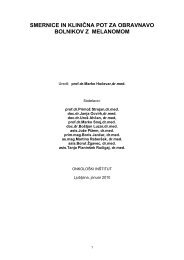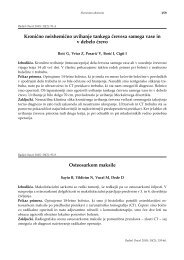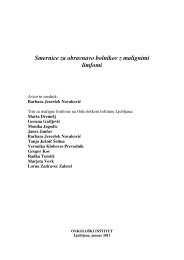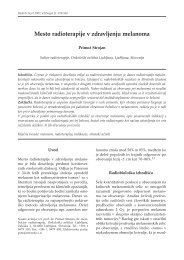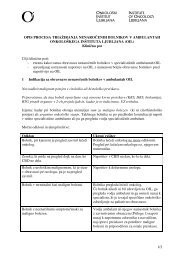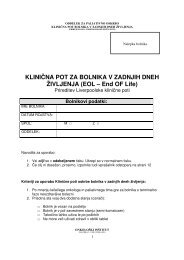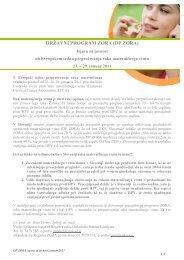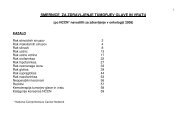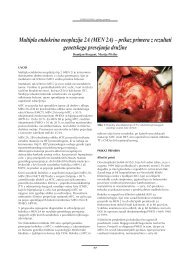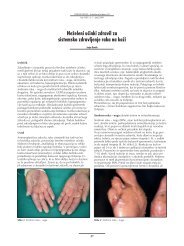Create successful ePaper yourself
Turn your PDF publications into a flip-book with our unique Google optimized e-Paper software.
Cooperation <strong>of</strong> urokinase-type plasminogen activator and tissue<br />
inhibitor <strong>of</strong> metalloproteinases-1 in the creation <strong>of</strong> a pro-metastatic<br />
niche via hepatocyte growth factor-signaling in the liver<br />
Charlotte Kopitz1, Florian Schrötzlmair1, Nils Brünner2, Achim Krüger1<br />
1Institut für Experimentelle Onkologie und Therapieforschung, Klinikum rechts der Isar der Technischen<br />
Universität München; 2Institute <strong>of</strong> Veterinary Pathobiology, Royal Veterinary and Agricultural University,<br />
Frederiksberg, Denmark<br />
Metastasis <strong>of</strong> tumor cells relies not only on their metastatic potential, but also on the<br />
susceptibility <strong>of</strong> a target organ to invading tumor cells. We recently demonstrated that<br />
elevated host expression <strong>of</strong> tissue inhibitor <strong>of</strong> metalloproteinases-1 (TIMP-1), which<br />
correlates with poor prognosis in cancers, leads to promotion <strong>of</strong> metastasis and tumor<br />
cell scattering in the liver. This was associated with induction <strong>of</strong> hepatocyte growth factor<br />
(HGF)-signaling and up-regulation <strong>of</strong> urokinase-type plasminogen activator (uPA). Yet,<br />
the impact <strong>of</strong> uPA in this TIMP-1-induced promotion <strong>of</strong> metastasis and the functional<br />
link between these molecules is unknown.<br />
Metastasis <strong>of</strong> lacZ-tagged murine T-cell lymphoma cells was compared in uPA knock out<br />
mice and their wild-type controls, both expressing elevated TIMP-1 levels by adenoviral<br />
transduction <strong>of</strong> TIMP-1. uPA-deficiency significantly inhibited TIMP-1-induced liver<br />
metastasis and scattering <strong>of</strong> tumor cells. In presence <strong>of</strong> uPA, elevated levels <strong>of</strong> TIMP-1<br />
led to increased total metastasis burden in the liver by 2.5-fold as compared to the viruscontrol.<br />
Lack <strong>of</strong> host cell-derived uPA abrogated this increase. In absence <strong>of</strong> host uPA,<br />
the TIMP-1-associated activation <strong>of</strong> pro-HGF was markedly reduced. Also, host uPAdeficiency<br />
suppressed TIMP-1-induced activation <strong>of</strong> HGF-signaling via the receptor<br />
cMet by 5.7-fold.<br />
TIMP-1-induced host cell-derived uPA is necessary for the pro-metastatic effect <strong>of</strong><br />
TIMP-1, by participating in the activation <strong>of</strong> the HGF/cMet-signaling pathway. Cooperation<br />
<strong>of</strong> a protease with an inhibitor <strong>of</strong> a different protease family in signaling demonstrates<br />
the<br />
l19<br />
complexity <strong>of</strong> the proteolytic network in the modulation <strong>of</strong> a pro-metastatic<br />
niche.<br />
34



